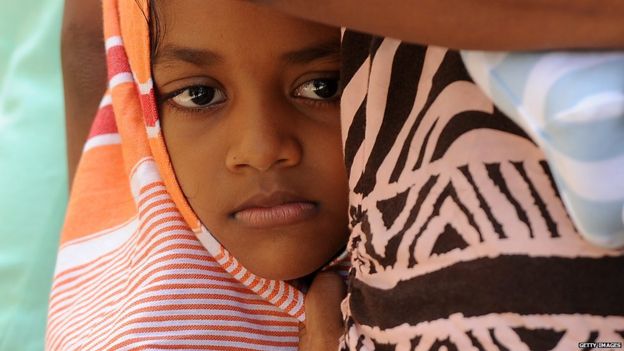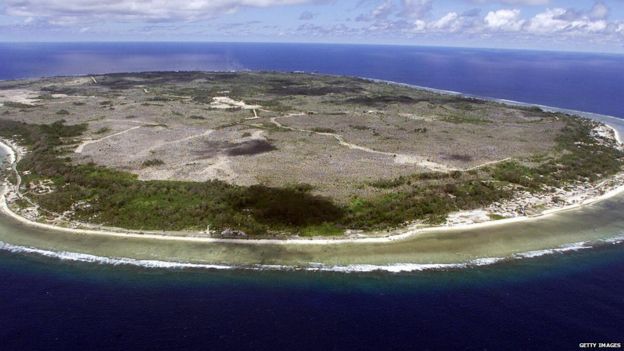 Getty Images
Getty Images
Australia has insisted Nauru is "safe" for refugees, playing down fears that they could face attack once they are free to leave an Australian-owned detention centre on the island.
Nauru says it will open up the centre, effectively ending detention there.
Australian Immigration Minister Peter Dutton said any attacks on refugees in Nauru would be fully investigated.
Rights groups have catalogued violence and abuses against Australia-bound asylum seekers detained in Nauru.
Under Australian government policy, all people who try to reach Australia by boat as refugees are held in offshore centres such as the one in Nauru.
In a surprise announcement, Nauru said on Monday that it would open up the detention centre on its territory, allowing the centre's residents to move freely around the island.
It also said it would process some 600 outstanding claims for refugee status within the next week.
 Getty Images
Getty Images
In a statement, Mr Dutton welcomed the move, and promised to help the Nauru government "deliver settlement services" to the refugees.
He also told the Australian Broadcasting Corp (ABC) that Nauru was a safe place to settle refugees.
He said that while the Australian government could not offer any "guarantee" of safety to refugees on Nauru, it was working with the authorities there to ensure that the environment was "as safe as it possibly can be".
For instance, he said, Australian police was training police in Nauru to investigate and prosecute crimes against refugees and asylum seekers.
While rights groups have welcomed Nauru's move, they have warned that it does not address fundamental problems with Australia's refugee policy.
"The men, women and children on Nauru need a real solution - settlement in a safe place where they can rebuild their lives," Daniel Webb from the Melbourne-based Human Rights Law Centre told AFP News agency.
"Instead they're being left languishing in an environment that is clearly unsafe for women and children."
Last week, ABC aired allegations by a Somali woman who said she had been raped by two men on Nauru - and that it took police on the Pacific island four hours to respond.
 Getty Images
Getty Images
And last month, an Australian senate report found conditions on Nauru were not "appropriate or safe" for detainees and urged the government to remove children from the centre.
It said allegations of rape and abuse should be investigated and access given to journalists and rights workers.
Nauru's decision came two days before the Australian High Court was due to examine the legality of Australia's role in the offshore detention.
In the interview with ABC, Mr Dutton dismissed suggestions that the move was intended to pre-empt a potentially "adverse finding" at the court.
"This has happened progressively over a long period of time," he said, referring to the Nauru authorities gradual easing of restrictions on the movement of detainees at the centre.
Australia's new Prime Minister Malcolm Turnbull has come under pressure to shut down all offshore migrant detention centres.
But he has defended the rules - a central policy of his predecessor Tony Abbott - by saying they are tough but save lives.
Australia and asylum
- Many asylum seekers - mainly from Afghanistan, Sri Lanka, Iraq and Iran - travelled to Australia's Christmas Island by boat from Indonesia.
- The number of boats rose sharply in 2012 and early 2013. Scores of people died making the journey.
- To stop the influx, the government adopted hard-line measures intended as a deterrent.
- Everyone who arrives by boat is now detained and processed in Nauru and Papua New Guinea. Those found to be refugees will be resettled in PNG, Nauru or Cambodia.
No comments:
Post a Comment